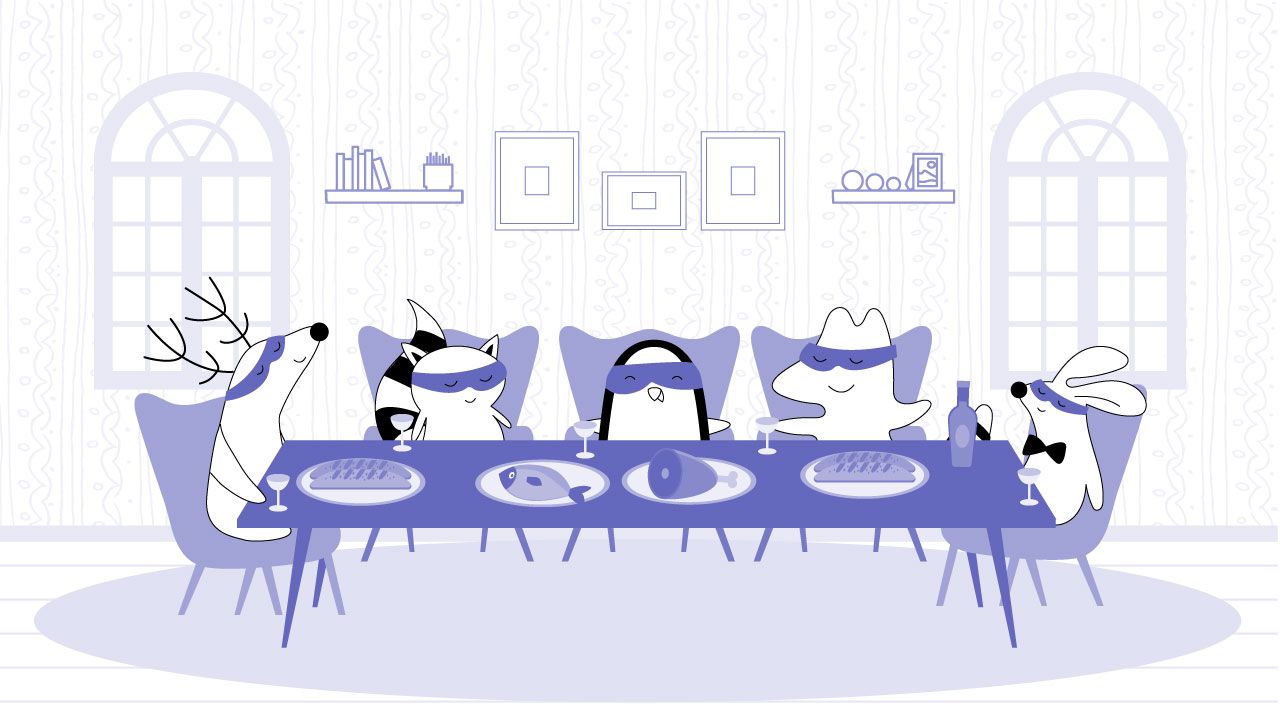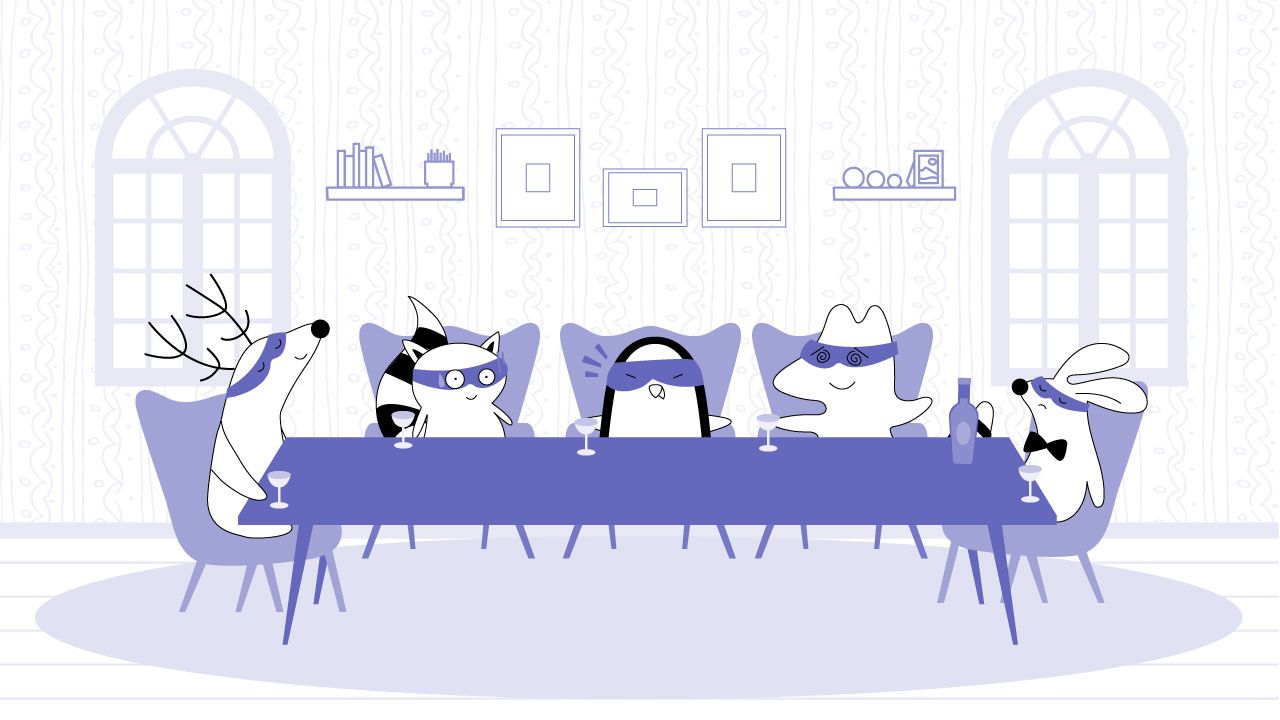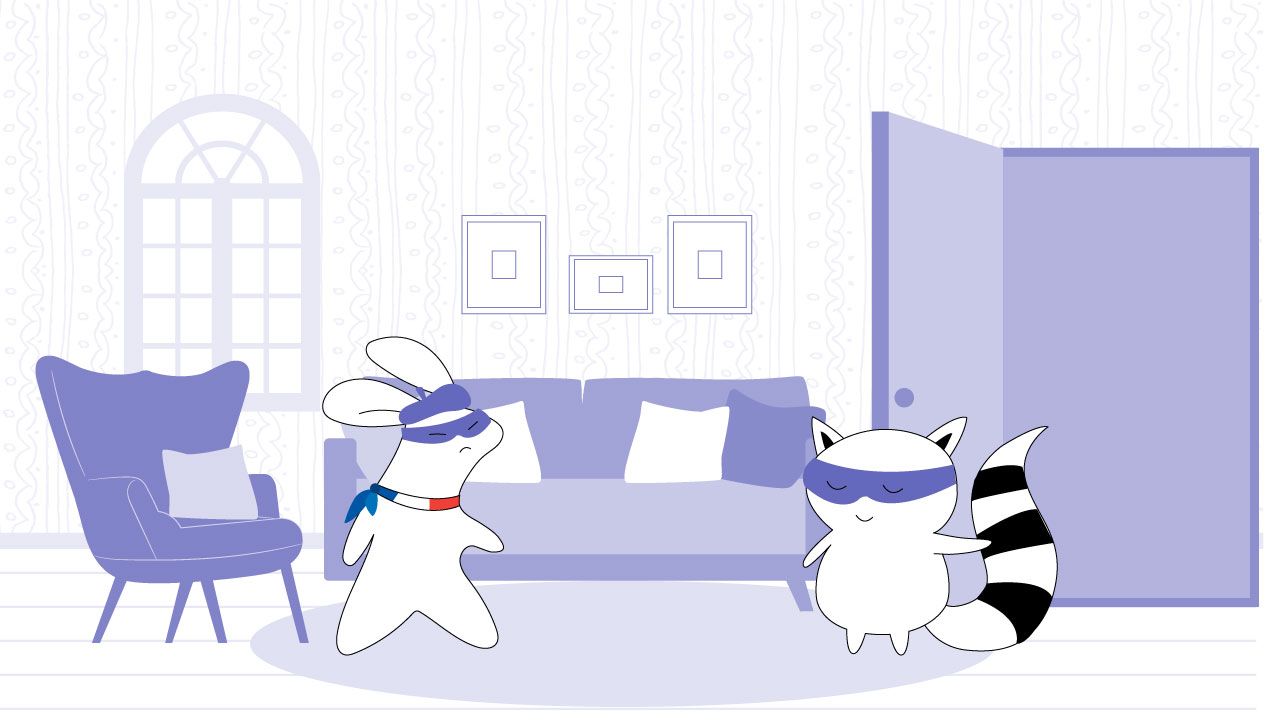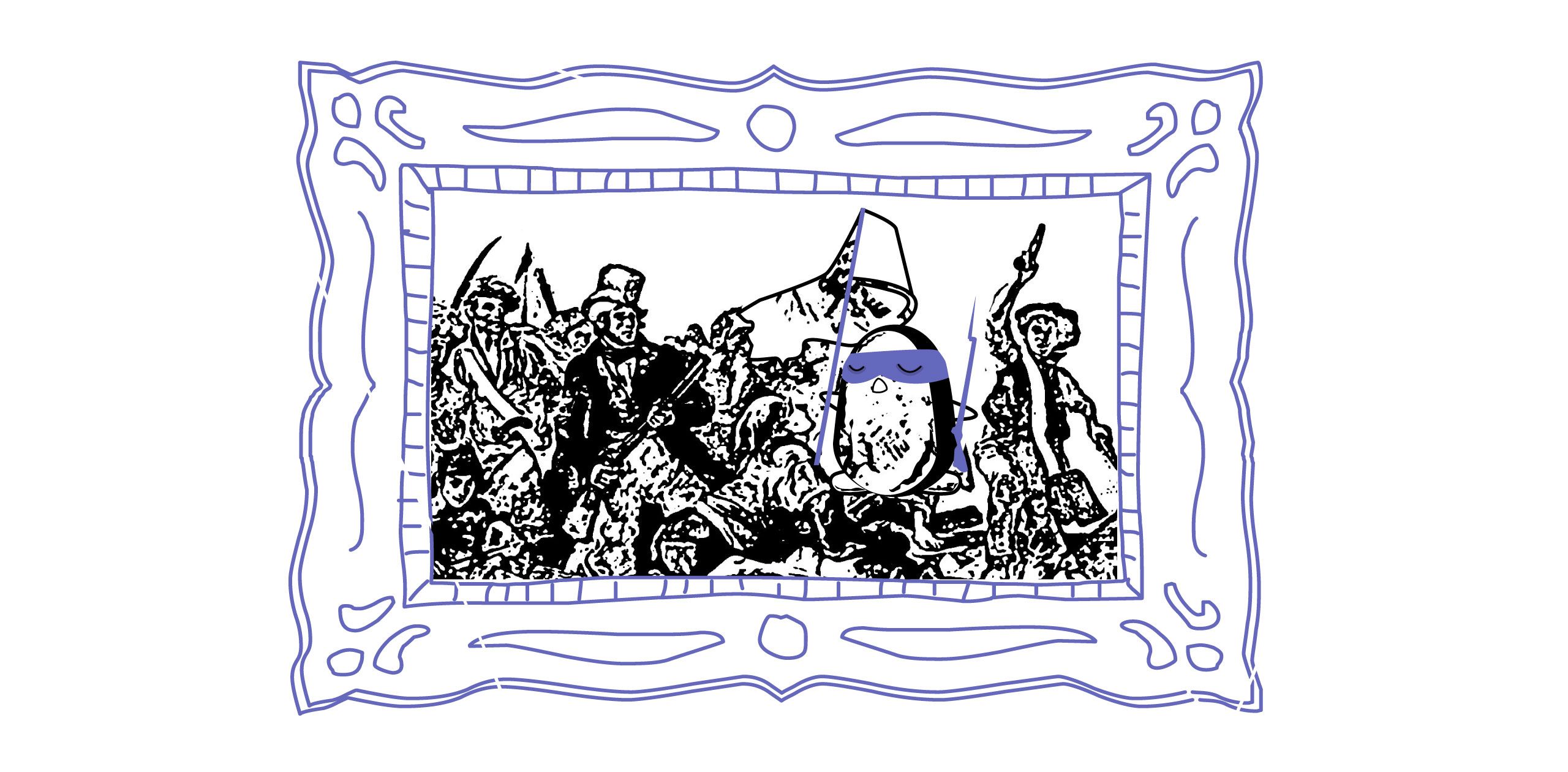
The French have a certain way of doing things, and that includes their etiquette and cultural norms. Many of the country’s customs may seem confusing or quirky at first, but it’s still important to be aware of them. Following these norms will help make your trip more enjoyable and ensure that you interact with locals in the most pleasant and effective ways.
This means, for example, understanding formal language or knowing how many bises to give in which region of France. While there are quite a few guidelines you need to be aware of, don’t worry – they are all pretty easy to get used to, especially if you’re planning a longer trip.
Let us show you the key points of French etiquette – and see for yourself how fun the French people can sometimes be. Read on, and get prepared for visiting or interacting with the French.
Learn French with Langster
Polite Formality Governs the Country
The French are known for their polite and formal manners. In fact, these traits govern the country and play a big role in everyday interactions. From the way you speak to the way you dress, good manners are essential when interacting with the French.
So, what do you need to know? First of all, always use formal language (address people via vous) when speaking to someone older than you or someone who has a higher rank in their profession. You should also use formal language when talking to strangers or people you don’t know well, unless they propose to move to the tu-basis.
Polite formality also means using Bonjour, Merci, S'il vous plaît, and Au revoir whenever necessary, even with strangers. Address people as “Monsieur” or “Madame,” say “Thank you” and “You’re welcome” – and smile when doing it.
Kiss, Not Hug
While it may be customary to hug your friends and family when you meet them, this is not the case in France. Instead, the French greet each other with a light kiss on both cheeks, known as la bise.
Depending on the region you’re in, it may be appropriate to give two, three, or four kisses, and start with either the left or the right cheek. However, even the French often get mistaken here – so, your best bet here is to follow the lead of the French person.
This may seem like a small thing, but it’s actually quite important to know. Hugging is considered too intimate for casual acquaintance, and long American greeting hugs can be seen as inappropriate in France. So make sure you stick to the cheek kisses when meeting someone for the first time or greeting someone you don’t know very well.
Table Manners: Polite, but Not Punctual

If you’re used to eating dinner at 6 PM sharp, you may be in for a surprise when dining with the French. Meals are typically a relaxed affair, and it’s not uncommon for dinner to start an hour or two later than what you’re used to.
If there’s a certain hour set, it’s considered normal to arrive 15 minutes late, so if you come on time, you might end up waiting on your French dining partners for a bit. It’s also worth noting that the French tend to take their time when eating, so don’t be in a hurry to finish your meal and leave. Instead, relax and enjoy the experience of savoring each course.
Lack of punctuality doesn’t mean that table manners are any less important, though. In fact, they are still very much a part of French dining etiquette, and adhering to some basic guidelines is considered polite. Here are some of the main French dining etiquette rules:
- Don’t start eating before everyone has a full glass in front of them.
- Wait to sit down until the host does so.
- Keep your hands on the table.
- No burping and no slurping.
- Never say you don’t like something – it’s one of the most important French table manners to comment only positively on the food.
- Don’t snap your fingers to call a waiter. (And don’t say garçon! either – French servers hate that.)
- Don’t pick your teeth, lick your knife or fork, or make food spots around you.
- Eat and drink slowly; don’t finish your glass in a gulp or your plate in two minutes.
Say No to Small Talk
The French hate mindless chit-chat and prefer to sit in silence rather than talk just to talk. This is one of the most difficult things for foreigners to get used to and can be very awkward.
This doesn’t mean that you can’t make small talk, but it’s important to know when and what is appropriate. Don’t ask people you’ve just met personal questions – the French are very private. This means no talking about age, income, marital status, or even what the person did last weekend – these topics are considered quite rude and should be avoided.
Choose the Correct Topic for Conversation
There’s no small talk or personal discussions, so what should you talk about? Well, there are safe topics in France: politics, art, and food. You can also talk about culture, philosophy, architecture, or popular events. You might want to brush up on the news before attending a dinner party in France; discussions of current affairs are also popular.
The one thing you shouldn’t discuss is money – it’s not in the culture to do so, and this topic still remains a taboo. While in America, it might be appropriate to ask people what they do for a living or how much they earn, never do so in France unless you want to be seen as a rude person.
The French can seem rude themselves, though, and that is because they love to argue. If someone starts a debate after dinner, don’t take it personally – it’s just in their nature. They can even talk about points they don’t agree with, simply to spice things up and see the situation from different angles. This can seem aggressive at times, but trust us: it’s not.

Don’t Be in a Hurry (or if You Are, Don’t Show it)
The French are known for their relaxed lifestyle and slow pace of life. This is most evident in their approach to time, which differs significantly from that of Americans. The French don’t believe in rushing through life, and they definitely don’t like being rushed by others.
This doesn’t mean that the French are lazy or that they don’t work hard. On the contrary, the French are some of the hardest working people in the world. They just believe that life should be enjoyed at a slow pace, and this is something that foreigners need to understand and respect.
This can be difficult for some people to adjust to, especially those who are used to a fast-paced lifestyle. Nevertheless, in France, it’s important to take your time and relax. Don’t be in a hurry to finish your meal or leave a social gathering, and don’t rush through things just to get them done. Relax and enjoy the moment.
Tipping is a Yes
Tipping is not mandatory in France, but it is appreciated, even though service is included in the bill. A good rule of thumb is to leave a few euros for good service. For example, you would leave 10% for a waiter in a restaurant (they are paid the minimum wage and will really appreciate it), or a few cents for the taxi driver.
One exception to this rule is that you should always tip a tour guide. Depending on the type and length of the tour, you can tip from 5€ to 20€.
Keep Doors Closed

The French are very particular about closing doors – both inside and outside the house. If you’re in a public space, such as a restaurant or café, make sure to close the door when you enter or leave. The same goes for homes: always close the front door when you come in and out.
This might seem like a small thing, but it’s actually considered quite rude if you don’t do it. Closing doors is considered marking a boundary between private and public, so staying only in the rooms with open doors when visiting someone is considered proper French etiquette. Also, when you visit a bathroom, make sure to always close the door after you leave it.
Wine Is King
Wine is an important part of French culture, so it’s no surprise that the country is home to some of the best wines in the world. When drinking wine, the French take their time and savor every sip. Wine is almost always served with meals, and of course, there are several French etiquette tips related to drinking it.
- When tasting wine, start by smelling the wine, then swirl the wine glass a bit, and then take a small sip to taste the flavors before swallowing. This will allow you to enjoy the drink properly.
- If you don’t like a certain type of wine, it’s best not to say anything – just like not saying anything negative about food.
- If you don’t want any more wine, leave your glass mostly full. It’s considered good French table manners to fill the empty glasses right away, so doing this small trick will allow you to avoid that.
- If you’re invited to a dinner party, don’t bring wine – instead, choose something like a box of chocolates or flowers (or, in casual settings, preparing a dish is also considered polite). Bringing your own wine is like saying that the host’s wine is not good enough for you.
French vs. English Language
The French language is very important to the people of France. It’s the official language of the country and is spoken by everyone. That being said, most French people understand English, especially in tourist areas.
But, even though they’ll probably understand you if you start speaking English, it’s considered polite to at least try to speak French when you’re in the country.
If you don’t know any French, first ask for permission to switch to English by politely saying, “Je ne parle pas français. Parlez-vous anglais?” (I don’t speak French. Do you speak English?). However, learning a few key phrases will be much appreciated.
If you do know some French, make sure to use it – even if your level is not very high. Saying even a few French greetings will go a long way and show your interlocutors that you respect their language.
Final Notes

From the importance of wine and dining etiquette to understanding the language and customs, there's much to consider when preparing for a trip to France or simply interacting with French people.
Even though these are just a few French etiquette tips, they should help you avoid any social faux pas and make sure you have a great time while visiting the country. Try to act like the French: be polite, take your time with everything, and enjoy the moment.









